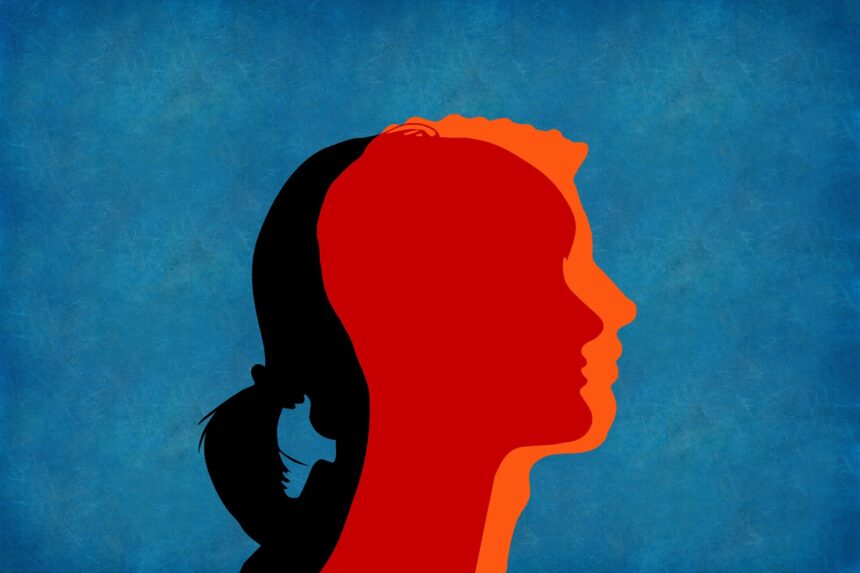Autistic transgender/gender diverse individuals are more likely to have long-term mental and physical health conditions, including alarmingly high rates of self-harm, new research from the University of Cambridge suggests.
Researchers at the Autism Research Center at Cambridge University found that these individuals also report experiencing lower quality health care than both autistic and non-autistic people whose gender identity matches their sex assigned at birth (cisgender).
The findings have important implications for the health care and support of autistic transgender/gender diverse (TGD) individuals. This is the first large-scale study on the experiences of autistic TGD people and the results are published in Molecular Autism.
Previous research suggests that both autistic people and TGD people separately have poorer health care experiences and are more likely to be diagnosed with physical and mental health conditions than other people.
In addition, a 2020 study of over 640,000 people, carried out by the Autism Research Center in Cambridge, found that TGD people are more likely to be autistic and have higher levels of autistic traits than other people. Several other studies now confirm this finding and show that autistic people are more likely to experience gender dysphoria than others.
Despite these findings, there are no studies that consider risks of mental health conditions, physical health conditions, and health care quality among autistic TGD people.
In the largest study to date on this topic, the team at the Autism Research Center used an anonymous, self-report survey to compare the experiences of 174 autistic TGD individuals, 1,094 autistic cisgender individuals, and 1,295 non-autistic cisgender individuals.
The survey assessed rates of mental health conditions and physical health conditions, as well as the quality of 51 different aspects of health care experiences.
The health care experience questions were wide-ranging and included questions about communication, anxiety, access and advocacy, system-level issues, and sensory experiences among others. They addressed several very basic aspects of health care, including asking participants to endorse statements such as “If I need to go to see a health care professional, I am able to get there,” “I am able to describe how bad my pain feels,” and “I usually understand what my health care professional means when they discuss my health.”
Both autistic TGD and autistic cisgender adults reported significantly poorer health care experiences across 50 out of 51 items compared with non-autistic cisgender people, confirming that autistic people appear to have poorer quality health care than non-autistic cisgender individuals, regardless of their own gender identity.
Compared to non-autistic cisgender individuals, autistic TGD people were three to 11 times more likely to report anxiety, shutdowns, and meltdowns related to common health care experiences.
For every 10 cisgender non-autistic adults who endorsed the following statements, on average, only two autistic cisgender adults and only one autistic TGD adult stated that they: (i) understood what their health care professional meant when discussing their health; (ii) knew what was expected of them when seeing a health care professional; or (iii) were able to describe how bad their pain felt.
Autistic TGD people and autistic cisgender people were more likely to report both long-term physical and mental health conditions that were formally diagnosed, suspected, or that had been recommended for assessment by clinicians.
For every 10 non-autistic cisgender people who had at least one diagnosed physical health condition, there were 15 autistic cisgender people and 23 autistic TGD people. For every 10 non-autistic cisgender people who reported at least one diagnosed mental health condition, there were 50 autistic cisgender people and 109 autistic TGD people who reported the same.
Alarmingly, it is now well-established that autistic people and TGD people are each at a much higher risk of suicide and suicide-related behaviors than other people. In 2023, the Department of Health and Social Care specifically recognized autistic people as a priority group in their “Suicide prevention strategy for England: 2023 to 2028.”
The new study found that, compared to people who are non-autistic and cisgender, autistic cisgender individuals were 4.6 times more likely and autistic TGD people were 5.8 times more likely to report self-harm.
Dr. Elizabeth Weir, a postdoctoral scientist at the Autism Research Center, and one of the lead researchers of the study, said, “These findings add to the growing body of evidence that many autistic people experience unacceptably poor mental health and are at a very high risk of suicide-related behaviors. We need to consider how other aspects of identity, including gender, influence these risks.”
These results emphasize the importance of considering intersectionality in clinical settings, including health risks for individuals who hold multiple minoritized identities. The researchers say clinicians should be aware of these risks and the unique barriers to health care that autistic TGD people may experience.
The findings also underscore that people who are autistic and transgender/gender diverse experience particularly high rates of mental health conditions and risks of self-harm.
Professor Sir Simon Baron-Cohen, Director of the Autism Research Center and a member of the team, said, “We need to consider how to adapt health care systems and individual care to meet the needs of autistic transgender/gender diverse people. Policymakers, clinicians, and researchers should work collaboratively with autistic people to improve existing systems and reduce barriers to health care.”
More information:
Autistic and transgender/gender diverse people’s experiences of health and healthcare, Molecular Autism (2025). DOI: 10.1186/s13229-024-00634-0
Provided by University of Cambridge








